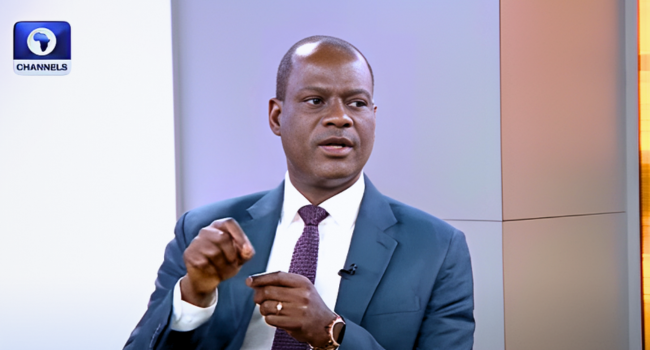The Chairman of the Presidential Committee on Fiscal Policy and Tax Reforms, Taiwo Oyedele, has dismissed allegations of negligence in consulting with state governors during the formulation of Nigeria’s latest tax reforms. Oyedele revealed that state governors refused to engage with the committee despite multiple invitations and scheduled meetings.
Speaking during an interview on Arise Television, Oyedele refuted claims made by elder statesman Buba Galadima, who accused the committee of favoring certain states and sidelining others in its consultations. Galadima had alleged that the proposed tax reforms primarily benefit Ogun and Lagos states and that other governors were deliberately excluded from the process.
Oyedele, however, disclosed that his team made repeated attempts to meet with governors, but their efforts were frustrated by last-minute cancellations and outright refusals.
Governors’ Forum Canceled Meetings Four Times
“In addition to engaging with various stakeholders, we prioritized discussions with the governors. We wrote to the Governors’ Forum and proposed meetings with six governors, one from each geopolitical zone. Unfortunately, only the Governor of Lagos State welcomed us,” Oyedele lamented.
He explained that the Governor of Kaduna State had also agreed to a meeting, but logistical challenges meant the Deputy Governor had to represent him. “I won’t name the others, but the remaining governors simply didn’t have time for us,” he said.
The Governors’ Forum, Oyedele revealed, invited the committee four times but canceled every scheduled meeting. “On the fifth attempt, we were kept waiting until 1:30 a.m., and when they finally met us, they allotted only 15 minutes. It’s impossible to discuss comprehensive tax reforms in such a brief window,” he added.
Broad Consultation Efforts
Contrary to claims of exclusion, Oyedele detailed the committee’s extensive consultations, which included interactions with over 120 Muslim clerics from the northern region, members of the League of Northern Democrats, manufacturers, small and medium-sized enterprises (SMEs), and representatives of various sectors.
“We engaged with over 40 sectors, including FinTech and women in business. The process was transparent, and we published updates regularly,” Oyedele said, emphasizing the diversity of the committee, which comprises members from all geopolitical zones and more than 20 government institutions.
Tax Reform Controversy
The proposed reforms, encapsulated in four bills—the Nigeria Tax Bill 2024, the Tax Administration Bill, the Nigeria Revenue Service Establishment Bill, and the Joint Revenue Board Establishment Bill—seek to overhaul the country’s tax system. A major point of contention is the derivation-based Value Added Tax (VAT) distribution model, which northern governors and traditional leaders argue will disproportionately benefit southern states.
Critics like Galadima have accused the committee of ignoring northern concerns, alleging that some panel members distanced themselves from the report. Oyedele dismissed these claims as baseless, stating, “There’s no truth to the allegation that committee members disowned the report. Every decision was made collectively, and disagreements were resolved through votes.”
Implications for States
Oyedele explained that the VAT reform aims to prevent chaos in the country’s tax administration. “If states like Lagos and Rivers succeed in collecting VAT independently, it would effectively mean 100% derivation, which would be disastrous for other states,” he warned.
He highlighted that the reforms would reduce Lagos’s VAT revenue while benefiting other states. “Ironically, the state we expected pushback from was Lagos. Instead, we’re facing opposition from those who stand to gain the most,” he said.
A Call for Constructive Engagement
Addressing calls for the withdrawal of the bills, Oyedele expressed disappointment that some individuals were using isolated disagreements as a pretext for opposing the entire reform package. “How can disagreements with one or two provisions justify discarding four transformative bills? Let’s discuss these issues constructively and allow lawmakers to make the final call,” he urged.
Presidential Backing
Oyedele praised President Bola Tinubu for his unwavering support of the committee’s work. “In my adult life, I’ve never encountered a president who grasps complex issues so quickly. President Tinubu understands the urgency of these reforms and has given us the freedom to execute our mandate without interference,” he stated.
Misinformation and Public Education
Oyedele acknowledged the role of misinformation in fueling opposition to the reforms. He recounted a meeting with northern clerics where misconceptions were addressed. “We had over 120 clerics in attendance, and after explaining the reforms, many of them prayed for our success. It was a powerful moment that showed the importance of clear communication,” he said.
The chairman reiterated the committee’s willingness to engage with critics and provide clarifications. “We are happy to discuss these issues anytime, anywhere. This is a national project, and we need everyone on board to make it work,” he concluded.

